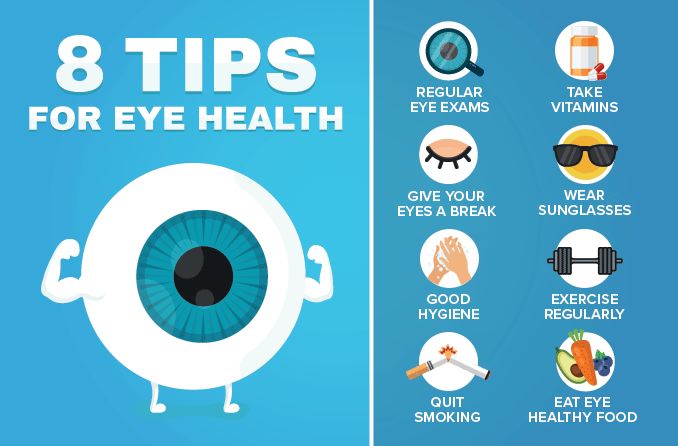Andalusia Pediatrics: Compassionate Take Care Of Your Children
Andalusia Pediatrics: Compassionate Take Care Of Your Children
Blog Article
The Complete Breakdown of Retina Disorders and How They Influence Your Vision
Retina disorders can disrupt this fragile procedure, leading to a variety of vision impairments. By discovering the anatomy of the retina, common problems that can impact it, their reasons, signs, and available therapy choices, we can gain useful insights into maintaining and securing our vision.
Overview of Retina Composition
The elaborate structure of the retina offers as the foundation for visual perception and plays a vital role in the process of transforming light right into neural signals for the mind to translate. Situated at the back of the eye, the retina is composed of numerous layers that function with each other effortlessly to promote vision. Recognizing the detailed composition of the retina is essential in comprehending how vision functions and just how numerous retina problems can influence aesthetic assumption.

Usual Retina Disorders
Retina disorders encompass a range of conditions that impact the complex framework of the eye in charge of aesthetic handling. One usual problem is age-related macular degeneration (AMD), a leading reason for vision loss in people over 50. AMD influences the macula, a part of the retina critical for sharp central vision, causing blurriness or unseen areas in the central visual field.
Another widespread problem is diabetic person retinopathy, occurring in individuals with diabetes. High blood sugar levels damage the blood vessels in the retina, resulting in vision impairment or blindness if left unattended. Retinal detachment is a significant problem where the retina retreats from its normal setting, triggering a sudden onset of drifters, flashes of light, or loss of vision in a curtain-like pattern.
Last but not least, retinitis pigmentosa is a group of genetic conditions that trigger the failure and loss of cells in the retina, leading to night blindness and a gradual constricting of the visual field - cardiologist andalusia. Comprehending these typical retina disorders is essential in preserving vision and looking for prompt clinical treatment
Reasons For Retina Disorders
Various variables add to the development of retina disorders, consisting of hereditary tendencies, lifestyle selections, and underlying health problems. Genetic predispositions play a considerable role in several retina conditions, such as retinitis pigmentosa and macular degeneration. People with a family background of these problems are at a greater risk of creating them because of acquired genetic anomalies affecting the retina's feature.
Lifestyle options can additionally affect retina health and wellness. Cigarette smoking, for instance, has been connected to an increased danger of age-related macular deterioration, a common retina condition that can lead to vision loss. Poor dietary behaviors doing not have essential nutrients like vitamins A, C, and E, in addition to omega-3 fats, can also add to the growth of retina disorders.
Diabetic retinopathy, an issue of diabetes, can trigger damages to the blood vessels in the retina, leading to vision problems. High blood pressure can result in hypertensive retinopathy, where high blood stress influences the blood vessels in the retina, possibly triggering vision problems.
Symptoms and Diagnosis
Provided the considerable influence pop over here that creates such as genetic proneness, way of living options, and underlying health and wellness conditions can have on the advancement of retina conditions, it is important to identify the signs and symptoms and make use of efficient analysis methods for early detection and administration. Signs of retina disorders see post can vary depending on the specific condition however might consist of blurred or misshaped vision, the unexpected appearance of advances or flashes of light, a dark area in the center of your vision, or a gradual loss of main vision. If you experience any one of these signs, it is crucial to seek prompt medical interest.
Early detection with routine eye exams is vital to preventing vision loss and managing retina problems effectively. If detected with a retina disorder, your healthcare provider will work with you to create an individualized treatment plan to protect your vision.

Therapy Options and Administration
Treatment options for retina disorders vary depending on the underlying cause and intensity of the problem. In situations of retinal detachment, medical treatments such as vitrectomy or scleral buckling may be required to stop and reattach the retina vision loss.
In diabetic person retinopathy, taking care of blood glucose levels is essential to avoid more damages to the blood vessels in the retina. In addition, therapies like laser surgery or shots might be recommended to lower swelling and stop vision loss. Routine eye exams and very early detection of retina disorders are crucial for successful management and therapy outcomes. People with retina conditions should function closely with their eye doctor to establish a personalized therapy plan that resolves their specific requirements and helps keep optimal aesthetic function.
Final Thought
In verdict, understanding the composition of the retina, usual disorders, causes, signs and symptoms, diagnosis, and treatment alternatives is crucial in handling vision disabilities. Retina problems can considerably affect vision and top quality of life, making very early detection and proper administration crucial. By remaining educated about these conditions and seeking proper clinical treatment, people can much better preserve their vision and maintain overall eye health and wellness.

Recognizing the complex makeup of the retina is fundamental in comprehending how vision functions and exactly how different retina problems can influence aesthetic perception.
Retinal detachment is a significant condition where the retina draws away from its regular setting, creating an unexpected beginning of floaters, flashes of light, or loss of vision in a curtain-like pattern.
Signs and symptoms of retina disorders can differ depending on the specific problem yet may consist of obscured or distorted vision, the abrupt look of advances or flashes of light, a dark area in the facility of your vision, or a progressive loss of central vision.In final thought, understanding the anatomy of the retina, common disorders, causes, signs and symptoms, medical diagnosis, and therapy choices is important in handling vision disabilities.
Report this page